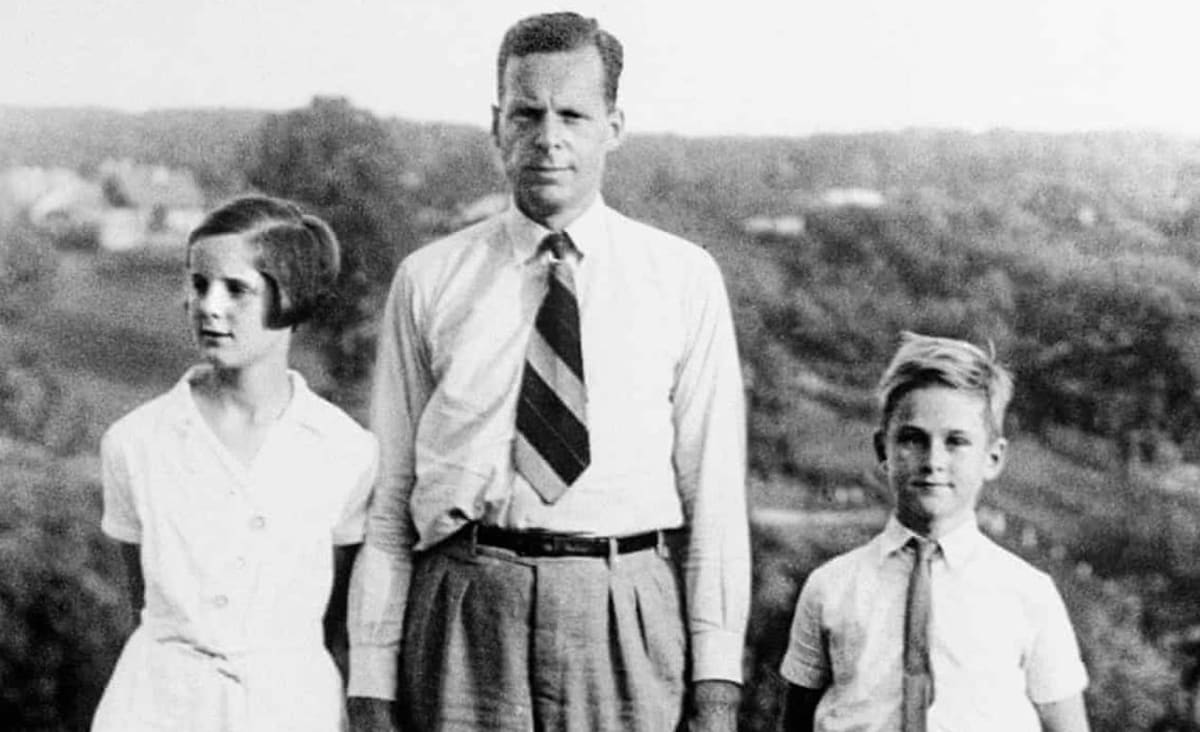
www.goodnewsnetwork.org
Story of Unsung Dutch Hero Who Saved Thousands From Nazi Holocaust is Finally Told 45 Years After His Death
An unsung hero named Jan Zwartendijk saved thousands of Jews during the holocaust, and is the subject of a book honoring his unknown story.
Culture & Entertainment
Among what must have been hundreds of thousands of stories of sacrifice, heroism, and courage that played out among the Jewish communities across Europe during World War Two, the story of ‘Mr. Radio Philips’, aka ‘The Angel of Curaçao’, has never been well told.
But 45 years after his death, Jan Zwartendijk, an ordinary Dutch company man-turned-real hero, is now the subject of a new biography called The Just: How Six Unlikely Heroes Saved Thousands of Jews from the Holocaust, which details his life-saving bravery that saved perhaps 10,000 Jews from annihilation during the Holocaust by helping them flee Europe.
In 1939, Zwartendijk took over duties as consulate in the then-capital of Lithuania, Kaunas, on behalf of the Dutch government-in-exile after the Netherlands was occupied by Nazi Germany.
A loyal company man for the home goods brand Philips, he sold gramophones, lightbulbs, and other goods out of the Kaunas branch before his reliability earned him the unpaid position as consul.
Soon after taking over, Jewish refugees from Poland—who fled following the Red Army’s invasion in 1940—began to arrive at his door seeking help.
Confronted with a dangerous choice, Zwartendijk did what “everyone would have done… if they had been in this position,” according to his son, recounting his father’s words to the Guardian.
He ended up issuing 2,139 passport visas to Jewish families for entry into the Dutch Caribbean colony of Curaçao, knowing that his signature of fountain pen script and green stamp could get them as far as the island—after which he could only hope the local authorities, whose approval was also needed for the Jews to enter the country, would allow them in.
Zwartendijk’s gamble would end up saving more people than Oskar Schindler—subject of the Academy-Award winning Schindler’s List—says journalist Jennifer Rankin in the Guardian.
While it was the Dutchman whose visas allowed those fleeing the war to find a new home, he was not the only brave soul working as a consul in the Lithuanian capital at the time.
Japan’s Chiune Sugihara helped ensure, through the long arm of the Trans-Siberian Railway, that the refugees had a reliable way of escaping Europe.
Sugihara and Zwartendijk were both denounced by their governments, but would later be honored as heroes—though it took quite a bit longer for Zwartendijk to be recognized.
Sugihara was named ‘Righteous Among the Nations’, the highest honor accorded to non-Jews by the state of Israel, two years before he died in 1986. Furthermore, he has a section in Japanese school curriculums, a decent Wikipedia page, memorials, and more.
Zwartendijk, on the other hand, was largely forgotten and did not receive the ‘Righteous Among the Nations’ honor until 1997. Yet a week after his death in 1976, writes Jan Brokken, author of The Just, research was published which estimated that 95% of all the people leaving Europe on a Zwartendijk visa escaped to freedom.
Since then, the Kaunas municipality has raised a memorial for Mr. Radio Philips in front of the corporate office he used to occupy. It’s a worthy recognition of a man the history books will not forget again. On reading the biography of his life, Stephen Spielberg wrote, “If I had known Jan Zwartendijk’s story before, I would have had filmed that.”
























































